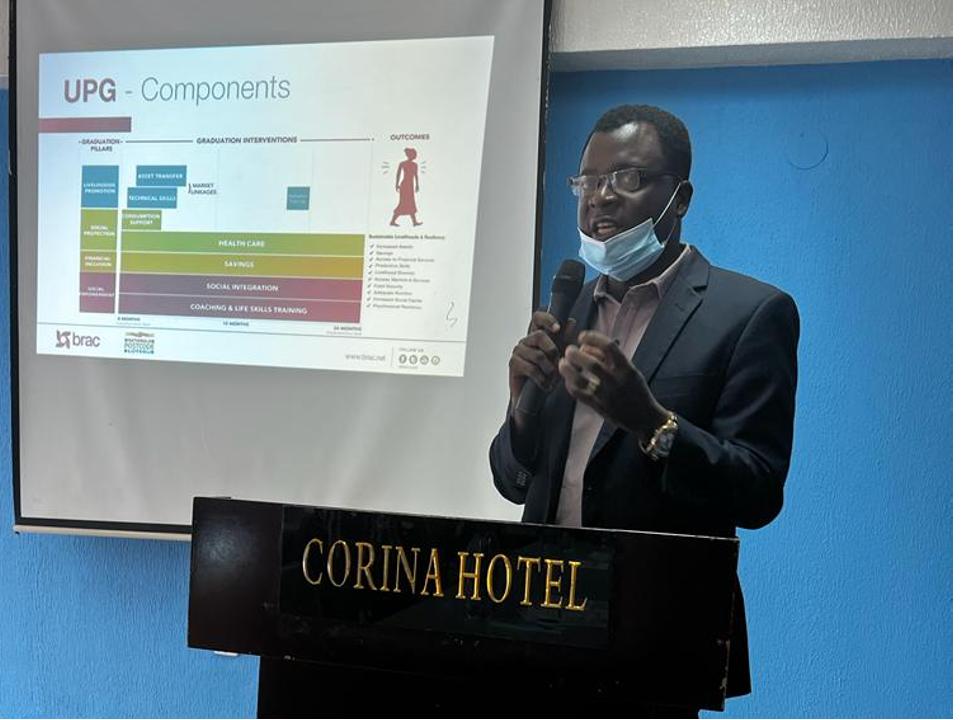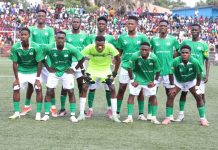
Africa-Press – Liberia. BRAC Liberia has released the final evaluation finding of its flagship program, the Ultra-Poor Graduation Program -the initiative that has empowered over 700 families in Bong and Marbigi County.
The Ultra-Poor Graduation Program started in early 2000 when BRAC International observes its projects -like microfinance, health, agriculture, youth empowerment were not reaching out to the “poorest of the poor” basically because they (the Poor) lacks the confidence to access the services that BRAC International was providing.
The program started in Bangladesh in 2002 and since then the program has impacted over a million households with seven million people in both Asia and Africa. In Africa, the first trial was in Uganda and Liberia happens to be the second trial country.
In Liberia, the Ultra-Poor Graduation Program began September, 2018, and ends in September 2021. The program was supported by the Dutch Postcode Lottery and 751 households, headed by youth from the age 18 to 35 years benefitted.
The progress of the poverty index shows a significant decrease of poverty likelihood while the poverty likelihood of the treatment group fell from 53 percent to 35 percent, it increased from 49 percent to 92 percent for the comparison group, calculating an impact of approximately 61 percent, the finding highlighted.
When comparing participants’ baseline situation, the Ultra-Poor Graduation Program diversified their income source by increasing their self-employment and by engaging in livestock rearing and other agricultural activities.
Skills development, assets accumulation, and other facilitation by BRAC, hence, proved useful for the participants to create new self-employment opportunities.
This was further witnessed by the significant difference in livestock sales between treatment 58 percent and the comparison 16 percent group.
UPG households grew resistant to socioeconomic shocks and were able to protect themselves from the livelihood loss during the COVID-19 pandemic. During this time, poverty was reduced by 61 percent.
The finding reviewed that a 31 percent higher number of UPG participants invested in agriculture and 7.5 times more in livestock inputs in the previous agricultural season over the comparison group.
Food Consumption Score (FCS) among UPG participants was well above the acceptable threshold with an increase of 9.9 points from baseline.
Some difference in effects was only restricted to short-term events (e.g. participants in the regular-cash-transfer arm were more likely to spend on share buying).
Speaking during the launch of the finding at the Corina Hotel in Sinkor, the Country Director Adolphus Doe says the Ultra-Poor Graduation Program; the Liberian project that begins in Bong and Margibi Counties will reach the last mile to end extreme poverty in Liberia.
The finding from the final evaluation of the Ultra-Poor Graduation Program, Mr. Doe says has shown massive progress in the two counties.
“The finding of our Ultra-Poor Graduation impact evaluation Research –the process ran from 2018 to 2021. This is the first Ultra-Poor Graduation Program that was held in Liberia. The Ultra-Poor Graduation Program is one of the flagship programs of BRAC International,” he said
Mr. Doe added: “A member from each household was selected to receive training on enterprise-specific skills. Following that, households received livestock, vegetable gardening or non-farm productive assets.”
“Homes were visited by BRAC staff to reinforce lessons learned within the livelihood and basic business and financial literacy training,” he said.
“The Ultra-Poor Graduation Program has significantly cushioned many of the negative effects of COVID-19 outbreak by protecting livelihoods of the Ultra-Poor Graduation Program participants and diversifying their income sources,” BRAC Country Manager said.
Theresa Sumo, 35, mother of nine children is a beneficiary. She lives in Horton’s Farm community in Kakata, Margibi County.
“I’m so proud of myself that I could come this far. I always felt like nobody, but I am now recognized in my community for my success. I’m grateful to BRAC for bringing this program to my community and helping us,” Madam Sumo said.
Also speaking, the Deputy Gender Minister for Children and Social Protection Madam Alice Johnson Howard praised BRAC Liberia for being one of the strongest partners over the years.
“Today, we are here to witness the finding from the program where you (BRAC Liberia) have graduated from over 700 families. Most of them are women who are single parents. We are very grateful to BRAC for having these people trained so that they can help their county at the local level,” Deputy Minister Howard said.
“We are looking forward to BRAC Liberia reaching out to our people in every part of the country including the southeastern part of Liberia. We count on you and we believe in your action and we hope more will be done,” she said.
For More News And Analysis About Liberia Follow Africa-Press





